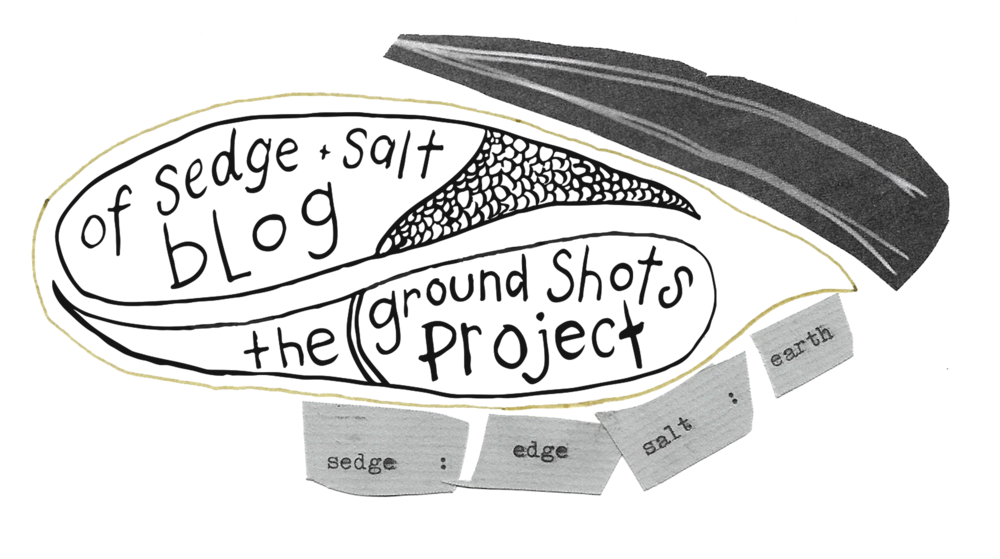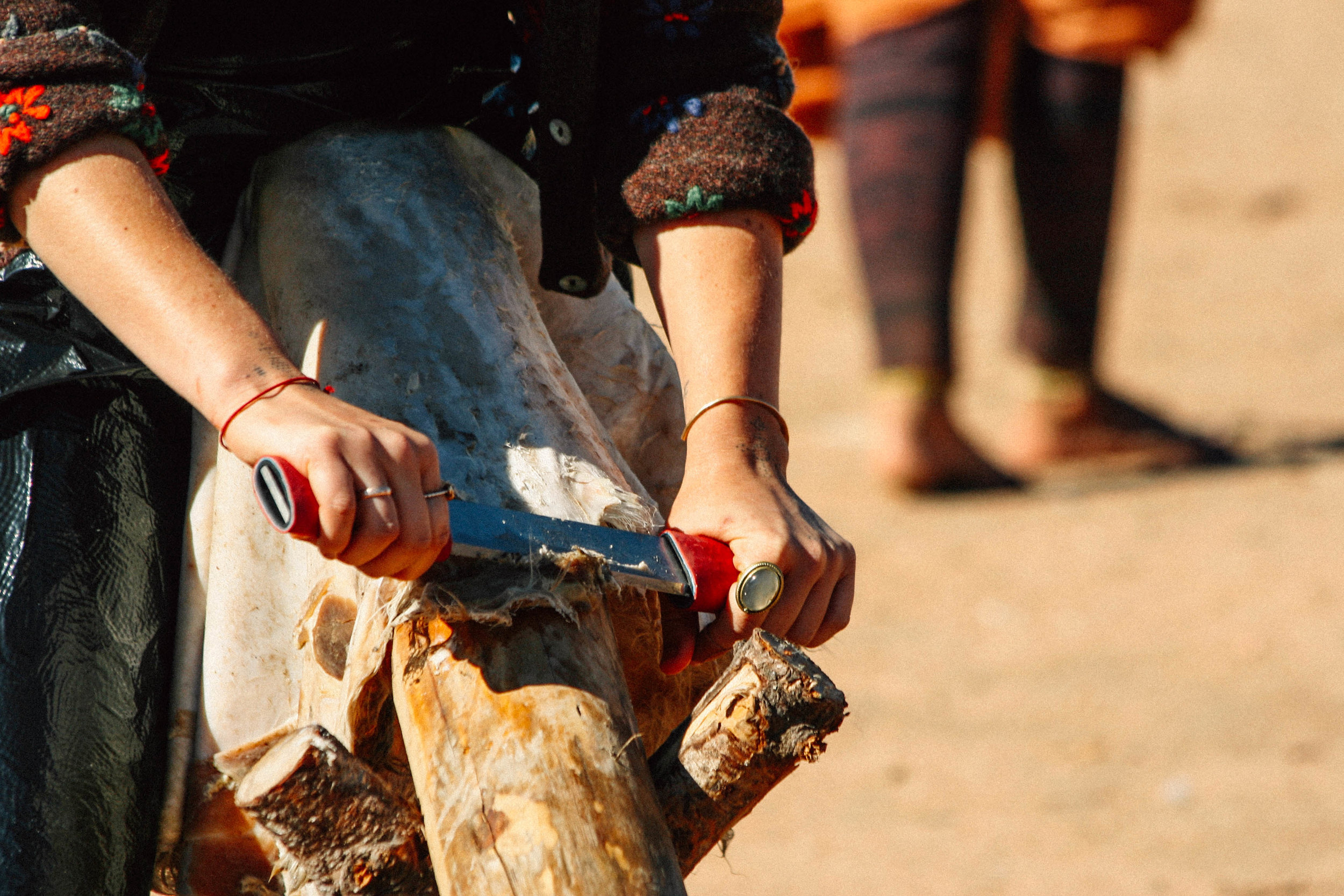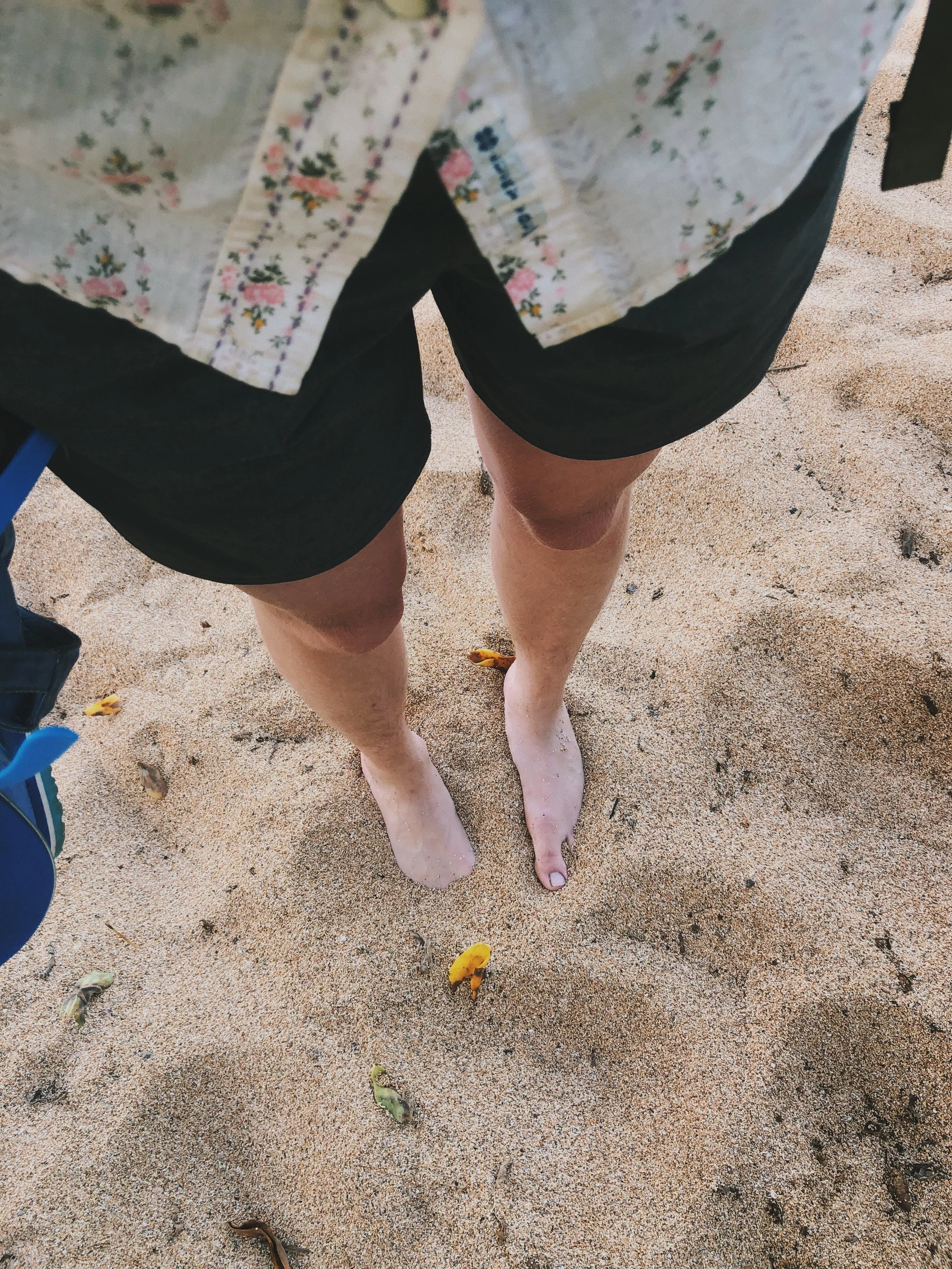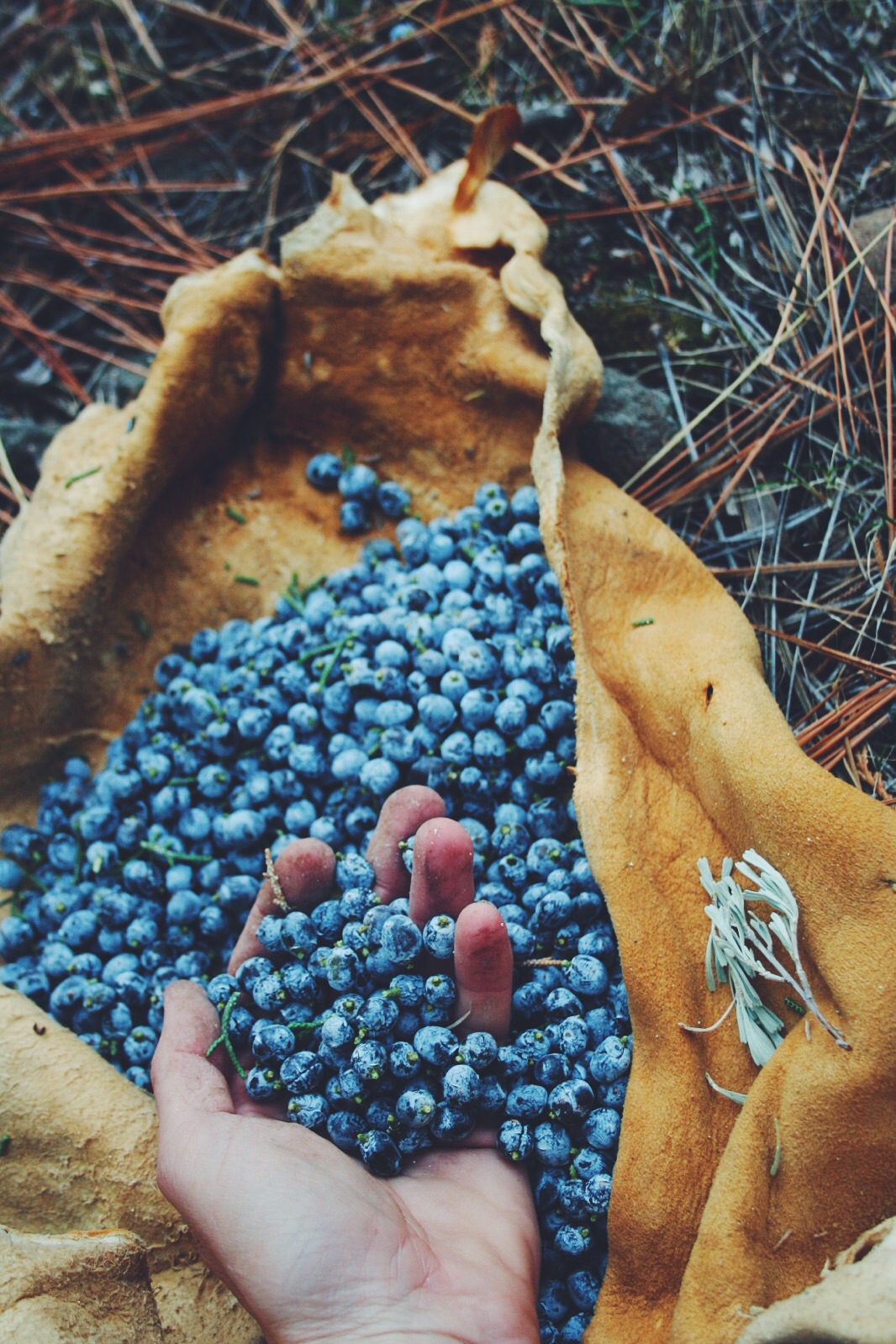I’m sitting in my camper after a long day of travel.
I've had a recent month and a half long stint of consistent movement in California. I have gone with intention to the Occidential Center of Arts and Ecology in Sonoma county, to the high Sierras with friends visiting from New York, to Yosemite on my birthday and back to Nevada City, and then to all over southern California for various meet-ups, classes, research excursions and interviews. All while also working on stuff for my Ground Shots project and my land capsule packages that I send out every month.
Desert Mallow.
Sometimes my plans change from moment to moment depending on the weather, how I was feeling, my health, the state of my truck or camper. Today I drove a long but beautiful route coming out of the old Piñon grove where I camped in the Santa Rosa mountains, and down to a beautiful valley that seemed like I was in high Sierra Sagebrush lands, and then planned strategically to zip through LA. I did it without much traffic which seemed like a godsend. I must have timed it just right. Timing is key, and I am just now learning it. I had planned to camp on the Carrizo Plains, or to detour into Malibu to visit a friend there. But, neither of these worked out, so I just decided to keep going.
I had my eyes for a campsite on the inland side of Big Sur that is one of my favorites, when some weird vibrations started in my truck. I suddenly felt like going out of my way to get to that campsite that is pretty far from any town maybe wasn’t a good idea. Here I was in the middle of the southern central valley, on a weekday, traveling alone, a storm rolling in where it maybe has only rained a handful of times in the past six months.
Some parts of this suddenly anxious scene were beautiful. Rainbows everywhere, scattered rains and sun peaking through dark slow clouds. A dynamic sky, a subtle relieving and all too familiar humidity rested in the air. Usually it is wide open and full sun. This was not a wild storm but a warm and nurturing one, reminding me nostalgically of Spring in Appalachia, and also a reminder that I am far far away from that place and reality at this very moment.
I pass miles of feed lots with cows packed fence to fence, not allowed to go out into the blossoming grass just on the outside of their borders. I see one briefly in the glimmer of diesel speeding past that looked totally dead. This horrific sight made me want to question eating beef again. I grew up with my Papa’s cows roaming around free, at least with more space: like 15 cows for every 30 acres. I see orange groves by the thousands. Groves that were getting torn up and burned in giant bonfires, farmers taking advantage of the rain, albeit subtle. I think of Steinbeck's East of Eden, Grapes of Wrath, mostly because the feeling they left with me after reading, is also a feeling I get driving through this place. There are giant gas rigs in between America’s ‘fruit basket’ groves, pumping away, with political signs every few miles noting that farming was NOT the cause of water shortages. It's all an immense overwhelming facade of extraction, taking all the water, taking all the topsoil, taking all the gas deep down in the earth. The hunger for churning, for turning over, for turning time into an energy that can be used to propel forward, progressing towards something we do not know what. Propelling is life, but as a species in a culture of excess, we aren't encouraged to use this propelling force we churn wisely or carefully.
Hide tanning.
Hide Tanning with Maya
I came out of the high desert in Joshua Tree after a sheepskin tanning class, then to hang out with a desert botanist/herbalist friend. Then, I went to the low desert where the flowers were a week or two ahead. I then went into the Santa Rosas, and all this had me adjusted to lots of spaces where the wild plants doing their thing in the natural relationships they prefer dominated, or at least were trying to. Not to say that Joshua Tree and Palm Springs don't have their share of development. I then dipped into Los Angeles and then the Central Valley. My eyes constantly searched for remnants of what the natural ecology maybe would have looked like before all this. I just see dried up cement aqueducts, or stairwells of water literally coming off mountains being diverted from here or there, or groves of fruit or nut trees with miles of frost protecting netting glistening in the sun coming through the clouds, a subtle wind blowing them around. The scale is tremendous. Its something an east coast southerner would have never been able to imagine without seeing it. Where our food really comes from. At least with the corporate highly mechanized model we have accepted as reality. The scale of Los Angeles is unbelievable, a suburban sprawling nightmare in urban planning that took me two hours to drive through. I think many times, what a mess we’re in. How much disturbance we have made in SUCH a short time is terrifying. I remembered that the west coast was ‘colonized’ by settlers a lot more recently than where I grew up. How much has been done in that short of time is insane.
Peri showing me a desert Scutellaria species
Agave at the Moorten Cactarium.
It makes me immensely tired sometimes to go between the most beautiful 'wild' spaces and these vast monoliths of human civilization, and wish that somehow the cities could feel like the wild spaces, that maybe we can find a way to weave the wild in better so we're not so mad sitting in climate controlled cubicles in traffic. But here I am, a kind of paradox, skirting by in a big diesel truck not running on grease, blowing fossil fuels like everyone else. Just as much a part of the problem as anyone, even if I am well intentioned and well meaning, my botanical research requires churning. My wanting to connect places, to figure out a way to highlight the importance of ecological and social diversity while doing so still requires that energy and money even if I do my best to be frugal. I can put in more effort for it to have less of an impact, like all of us.
Joshua Tree.
I look towards the in-between spaces as best as I could while driving. Every now and then I see patches of Oak savanna, or scrub lands with squatter wind worn Oaks and maybe Ceanothus or some Artemisias, where a farmer let a few acres of hedge go ‘wild.’ My truck is going nearly 75 mph, and it starts to vibrate weirdly in intervals, and it ignites one of my deepest fears of breaking down alone and being unprepared. My wheel bearings just got replaced this past fall, and it went through a terrible vibrating spell as that problem had quickly worsened. I suddenly get that feeling like ‘a cop is pulling me over and my heart is in my stomach’ feeling and I try not to panic. And think- damn where did I put that AAA number? Doesn’t my insurance have a number like that on the card? Have I even looked at my insurance card lately? Oh how I wish I was tucked safely in a cabin in the woods writing or weaving without seeing a road during those moments. It got me surveying the practical things I have sometimes had to learn the hard way while traveling over the years. So, I came up with some things while I was navigating my brief panic, and contemplating how destructive humans can be. I decided to slow down to 60 mph to calm my nervous system and the vibrating seemed to stop, for now.
So, with that scene came out of me another list of things to consider if you're hitting the road for camping, a project, adventure, escape, an expedition or a whatever reason you might feel called to go out there. These things are focused more on logistics and practicalities than body/mind/spirit-type of self care. I've had friends help me figure some of these things out over time. This is just as much a reminder guide for me as it is for others. And like the guide before, this is for general car traveling, there are many other forms of moving around across the land or sea.
Peri showing me Ceanothus greggii.
1. Carry extra fuel just in case.
Thing one I have learned the hard way. Twice I've run out of fuel on the road, and I had never had that happen before. The truck I am driving, a Ford diesel that was my dad's old work truck, has an unreliable gas gauge. It doesn't hurt to carry around a full gas can just in case you misread the gauge, or hell, need to help someone else out.
2. Carry extra water jugs.
Especially out west, where you may drive all day and not really see a town, or the temperatures can get so hot and not a sight of water is in the horizon. If you break down and have no water, you could die. Climate controlled cars can be dehydrating. Refill all available jugs, water bottles and used juice containers any time you see a clean water source to fill up.
3. Stay up to date on your oil change.
Thing 2 I learned the hard way. Lymph drainage for cars. Your miles will be more fuel efficient, your car will last longer. It's self care for the technology we often take for granted. It's a privilege to drive around a car or truck or RV, it's best to try to make them last as long as possible, and drive as efficiently as they are made to drive.
4. Have plan a, b, c.
Things usually don't work out as planned. Try not to be attached. The 'secret' campground could be actually full when you get there. The road could be washed out, or the whole beloved forest could be burned down from a recent fire (true story in Nevada), or you could just be tired of driving or planning. Think of alternatives to your set plan, and be okay with it going different directions. Breathe deep when you need to plan something else. This too is something I have learned the hard way, often getting overwhelmed but having to make new plans all the sudden.
5. Have a physical atlas.
They are not dead. Maps are super useful. Especially paper ones. GPS doesn't always work. Or, it could not show all the roads. Sometimes it is easier for planning to lays a map out on the table. To see the bigger picture.
6. Stay on top of vehicle repairs.
The number one way to prevent car breakdowns is to address things before they get bad. Sometimes ELSE I've learned the hard way.
7. Survey and organize ‘stuff’ consistently.
Space is important. Make or find containers to reuse to store things. It will make life easier, you'll know where to find everything. I've also learned this the hard way when I say yes to every piece of free clothing people offer me and suddenly me tiny camper closet is full of clothes I am unsure I like.
8. Have your music // podcast situation figured out.
I could laugh right now. But not. Music is essential for long trips. Recently I had the cassette player jam in my truck, my only source of music besides the radio, which I don't want to listen to, and I am left to listening to music playing from my phone and sometimes I can barely hear it. I had one of those cassette to aux cord adaptor things, old school technology, that I can't use. Not to mention that Apple just eliminated the aux outlet on newer phones so you have to 'not lose' the adaptor if you want to plug in and play music.
9. Know where your AAA or similar contact info is.
Get it if you don’t have it. Sometimes a car insurance policy has a roadside service as an add-on for pretty cheap. I think it's worth it to know you can call and get a tow. Know where the number or card is for this so you're not panicking if something goes down.
10. Carry cash, don’t just rely on cards.
Also a card is helpful for gas after hours, sometimes. Campgrounds in national forest or parks are often a pay cash in an envelope type of situation. I know some folks only prefer cash, and some only prefer credit or debit cards. I have rolled up on a gas station late at night and been unable to get gas and keep driving because it was cash only. In the middle of the panhandle of Texas. Another lesson learned the hard way. Please, find humor in my hard learnings and make it easier on yourself if you take to the road.
11. Carry extra lighters, toilet paper, trash/ziploc/reused grocery bags.
These things are not hard to find at gas stations, and are often needed and useful. If you're cooking your food, lighters are nice to have. Sure, there's always the bow drill. Not everyone can do that, or wants to whip it out in 40 mph winds at a truck stop in Kansas to just cook some soup. Modern life meets the choices of simpler technology. Your call. Toilet paper can always be substituted for leaves or moss, and those things are pleasant, as long as you can ID your Poison Ivy or Oak. Bags are useful for trash, or for containing things. You can always reuse the ones you have acquired already.
12. Let people know where you are.
Super important, in case you break down or goddess forbid, something else bad happens. Keep in contact with folks, as much as you want to 'go off the grid.' Give tenative plans or location possibilities to folks outside of your travels.
13. Have someone(s) you can call to ask for advice
about weather/where to go/what might be wrong if something does go wrong. I have done this many times, because it's hard to check weather live while driving or process the possibilities on the road, or just to get a second opinion.
14. Trust suggestions from people who know the place best
if you can. Know someone who has been there already? Or lives there or did at one point? Ash them about the best camping, hiking, food, laundry, snowy mountain passes, weekend traffic type of things. They may also give you insight into special secret spots they love and are wiling to share with you. (but only you)
15. Carry a tire pressure gauge.
These things are cheap. They're good to have on hand to consistently check your tire pressure which can change with the temperature or with wear. It will give you a clue as to whether you have a leak or not. It's good to have you tire's PSI at the appropriate rating recommended in your car's manual. This could shift if you're driving on crazy roads and your tires need more give.
16. Know how to change your tire.
Do it at home a few times to practice so you feel calm and confident in emergency situations. Make sure the spare is good, too. I have REALLY learned this the hard way. See my blog post from this summer Good Medicine, Moab, and Mormons. Don't let a flat tire make you realize you might be missing some parts. I thought that my camper was inhibiting my ability to change my tire this summer because my tailgate stays down, and Jim Croft was scheming a custom blacksmithing job for a piece to do it, but actually I didn't look at the manual hard enough and the 'extender' piece was hidden under a seat somewhere. Oops.
17. Carry a first aid kit.
Always a good idea. With all the first aid basics like band-aids, wound cleaning supplies, gauze, tweezers, betadine, saline solution. I carry a few basic tinctures in there for immune support, stress, and sleep support. I have a hydrosol spray for when I have moments where I need a shift that might contain herbs like lavender, monarda, pine or cedar. These are herbs I personally prefer, others maybe would want something different. 7song has a ton of resources on first aid here. I carry sometimes a gentle nervine formula in my car side door to take on the fly. Sometimes it is a straight Tulsi tincture, or a Rose Elixir, or something with a tad of Skullcap, Blue Vervain, Pedicularis, or Passionflower to relieve acute tension. I know Milky Oats is great, and i used to grow it as a cover crop and harvest my own for medicine, but for some reason it never resonated with me. Milky Oats works for a lot of other folks, though, as a nice nervous system balm.
18. Have water and snacks within reach
so you don’t have to dig for them while driving, and in case you end up having to drive longer than you thought without a break. I've been stuck in traffic and I ran out of water and it's in the back! Or all my snacks are in my ice box and I'm starving.
19. Carry a tool box
with a good socket set (Metric and SAE), wrenches, duct tape, pocketknife, skinning knife, basic screw drivers, simple sewing kit, etc. These things have come in handy many times for one thing or another. Whether it is a repair on the camper or on the truck, or trying to get the stuck cassette out of the cassette player, it sucks to be stuck without the simple usefulness of a socket set.
20. Utilize friend’s houses when you stay with them.
Utilize your friend's hospitality to charge everything: phones, camera batteries, computers, headlamp etc. Bathe, fill water jugs up, put freeze packs in their freezer if you have a cooler or an icebox like me! Wash clothes, sheets or sleeping bag if they’re into it. Do their dishes, throw some $ down and offer to help do something in exchange for resources.
21. Research the ecological and social history of the places where you are.
Even if it is a quick google search, having context for place from many angles makes being a traveler a space to gain wisdom from rather than a space where you could be inadvertently destructive. I don't claim to do this all the time, but I try to gather in layers, over time, the stories of the places I've spent the most time, not just the ecological story aside from humans, but the ecological story that includes humans. This helps me be more sensitive to that place and its intricacies.
















































